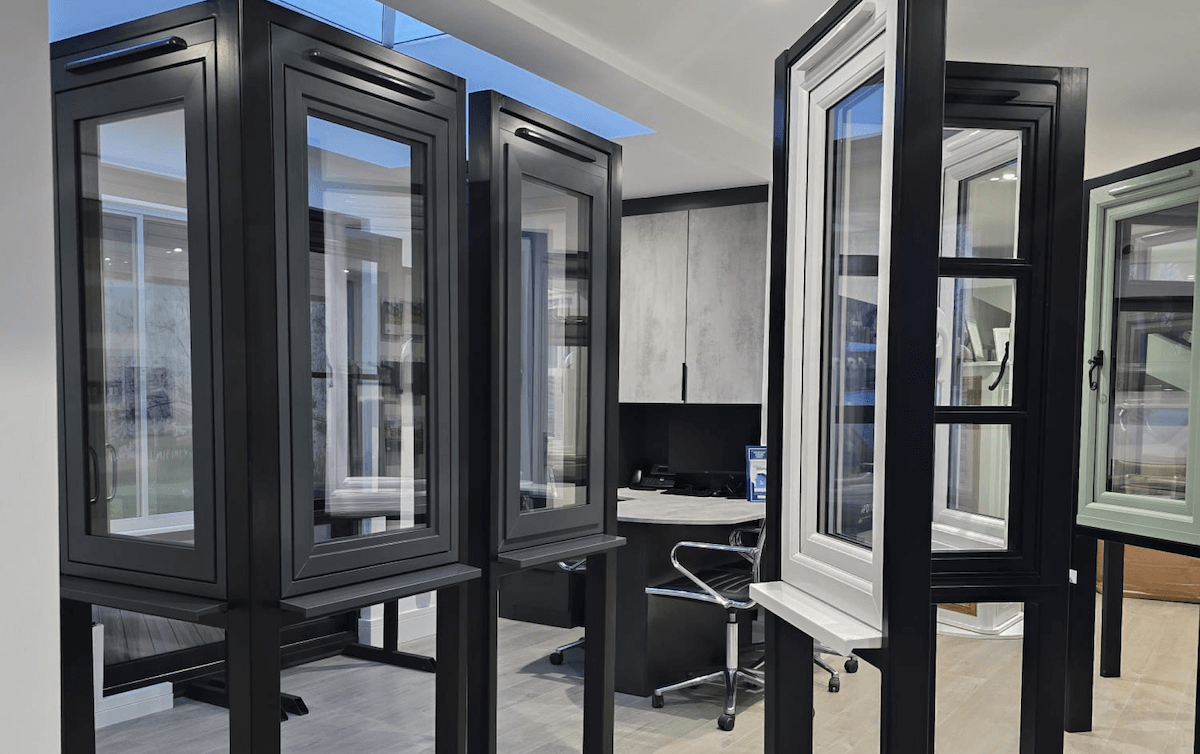What’s the Difference Between Double and Triple Glazing?
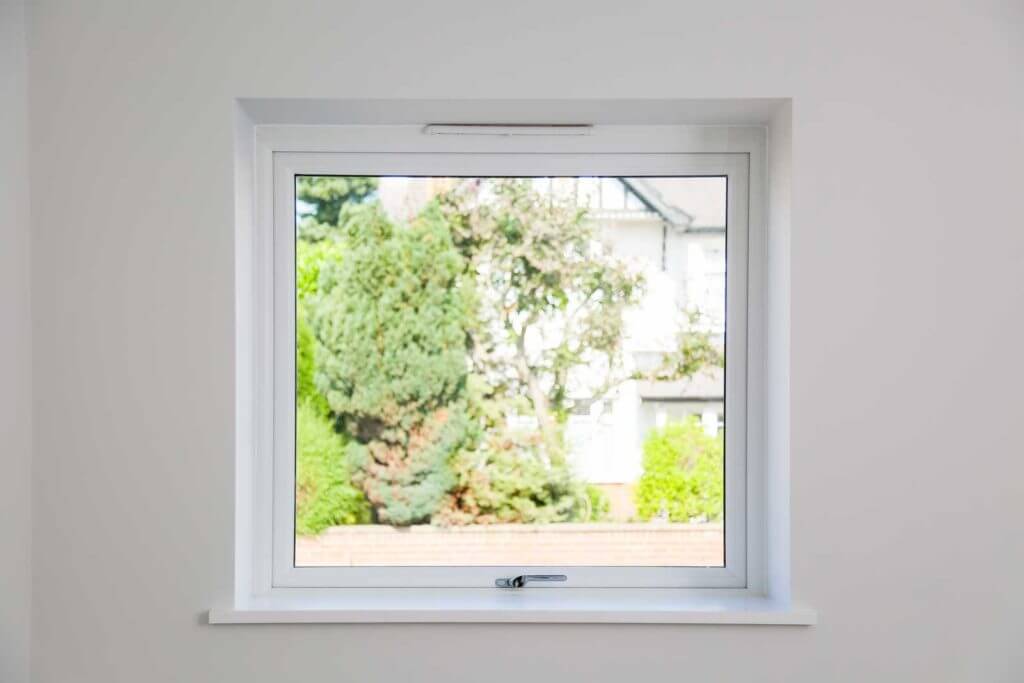
- 05 March 2025
- News
When it comes to upgrading your windows, understanding the difference between double glazing vs triple glazing is crucial for making an informed decision.
As Essex and Suffolk’s leading energy efficient home improvement specialists with over 100 years of collective experience, we’re here to help you understand the key differences and benefits of each option, helping you make the best choice for your home.
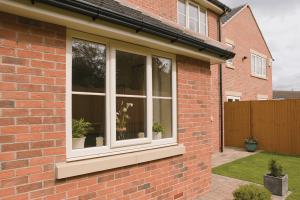
The fundamental difference
While the basic concept of both systems involves multiple panes of glass, the construction and performance characteristics differ.
Double glazing consists of two panes of glass with a sealed gap between them, typically 16-20mm wide. Triple glazing features three panes of glass with two separate air gaps, usually resulting in a total unit thickness of around 36-44mm.
Both types use inert gas (typically argon) between the panes to improve thermal efficiency, but triple glazing provides an additional barrier against heat loss and external noise. The extra pane of glass and gas-filled cavity in triple glazing create an additional thermal barrier, helps with heat retention and minimises heat loss, significantly improving its insulating properties.
Thermal efficiency: breaking down the numbers
When comparing double glazing vs triple glazing in terms of energy efficiency, we need to look at U-values – the measure of heat transmission through a structure. The lower the U-value, the better the thermal performance.
Single glazing typically achieves a U-value of 5.0 W/m²K, making it extremely inefficient by modern standards. Standard double glazing performs much better, with U-values around 1.6-1.2 W/m²K when using modern Low-E glass and argon gas filling.
Triple glazing offers the best performance, achieving U-values as low as 0.8 W/m²K or even lower when combined with our advanced frame technology and warm edge spacer bars.
Because triple glazing is more efficient at preventing heat loss compared to standard double glazing, this option can lead to potentially lower energy bills and a more comfortable home temperature year-round. In real terms, this could translate to energy savings of up to 50% compared to older single-glazed windows.
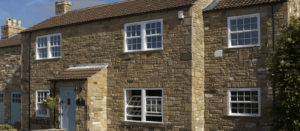
Which option is better for my home?
The best choice depends on several crucial factors that need careful consideration:
Location plays a vital role in your decision. If your property is exposed to harsh weather conditions or situated near a busy road, triple glazing might be the better option for noise reduction and thermal protection. Properties in exposed or north-facing positions particularly benefit from triple glazing’s superior insulation properties.
Your current windows should be considered carefully. If you’re upgrading from single glazing, double glazing will already offer significant benefits in terms of energy efficiency and noise reduction.
However, if you’re already using older double glazing, the upgrade to triple glazing could provide noticeable improvements in both thermal and acoustic performance.
Budget considerations are important for any home improvement project. While triple glazing carries a higher price tag initially, the energy savings over time can offset the extra cost, particularly in newer properties built to high energy performance standards.
The importance of a thermally efficient home
Creating an energy efficient home delivers multiple long-term benefits. You’ll see a noticeable reduction in your energy bills throughout the year, potentially saving hundreds of pounds annually depending on your property size and current window efficiency.
Your carbon footprint will be significantly reduced, contributing to environmental protection and supporting the UK’s net-zero goals. Your home’s Energy Performance Certificate (EPC) rating may improve, potentially increasing your property value. Perhaps most importantly, you’ll enjoy a more comfortable living environment throughout the year, with fewer cold spots and draughts.

Double glazing vs triple glazing: a comparison at a glance
Double glazing
Double glazing offers a more affordable initial investment for homeowners. It provides a significant improvement over single glazing. However, it’s less efficient than triple glazing and offers lower noise reduction capabilities. It may also not meet future energy efficiency standards.
Triple glazing
Triple glazing provides superior thermal efficiency and notably better noise reduction capabilities. It also represents a future-proof investment for your home. The main drawbacks include a higher initial cost and heavier units requiring robust frames.
Are there any disadvantages to using triple glazing over double glazing?
While triple glazing offers superior insulation and energy efficiency, some drawbacks include increased cost, heavier weight, potentially reduced solar gain, and limited options for retrofitting in existing buildings due to the thickness of the glazing units.
Window options from Energy Efficient Homes
At Energy Efficient Homes, we offer both double and triple glazing options across our entire range. Our selection includes casement windows, tilt & turn windows, bay & bow window, sliding sash windows, and flush sash windows.
All our windows are manufactured using the latest technology and high-performance materials. We incorporate warm edge spacer bars, Low-E glass, and multi-chambered profiles in our designs. Each unit is filled with argon gas and features high-security locking systems for your peace of mind.
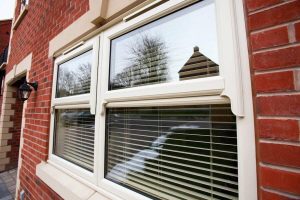
Exceptional window insulation: get in touch with Energy Efficient Homes today
Whether you choose double or triple glazing, Energy Efficient Homes can help you make the right choice for your property. Our experienced team provides honest, professional advice without any pressure selling.
To discuss your options or get a free, no-obligation quote, you can complete our online contact form on our website.
We welcome you to visit our showroom in Marks Tey, Colchester, where you can see our full range of windows and speak with our friendly team about the best glazing solution for your home.


